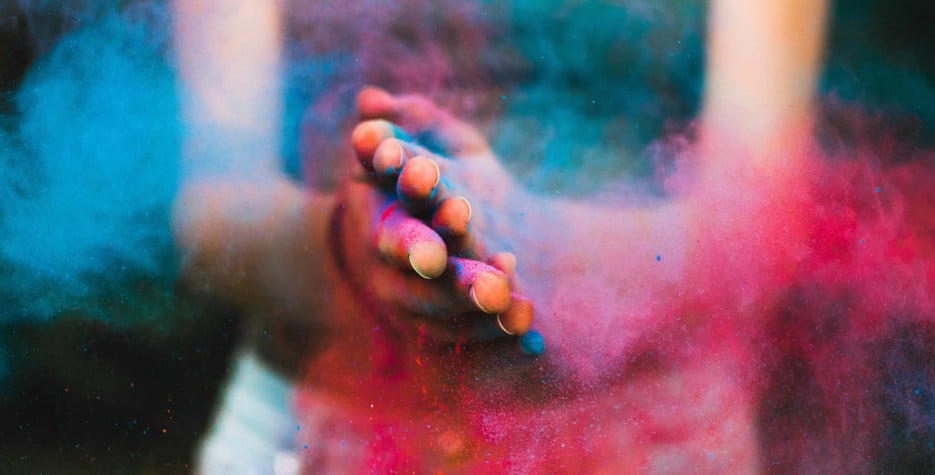Doljatra, also known as Dolyatra is a regional public holiday in the Indian state of West Bengal. It may also be known as Dol Purnima in Assam and Odisha.
It is celebrated on the same day as Holi, the last full moon in the Hindu calendar, and also has the moniker 'Festival of Colours'.
It differs from Holi in that it is the last festival of the Bengali Year and is based on a different legend to that of Holi.
Traditions of Doljatra
Doljatra is based on the legend of Krishna and Radha in which Lord Krishna expressed his love to his beloved Radha on the day of Doljatra.
Like Holi, coloured powder is a key part of festivities, and is known as 'phag' in Bengal. The application of phag starts with a degree of reverence as the powder is applied to pictures of deceased family members, then on the feet of elders as a mark of respect. From then on, it is open season, with everyone up for being given a 'mark of respect' - basically to get covered in phag.
The festival is also known as the 'swing festival' as idols of both Krishna and Radha are paraded on highly decorated palanquins (a type of open sedan chair), which are swung around. Women will sing songs while the men spray coloured powder at the idols.
Doljatra also has an added significance for Bengalis, as it marks the birthday of Chaitanya Mahaprabhu, a great 16th century Vaishnava saint and poet, regarded by some as an incarnation of Krishna.


